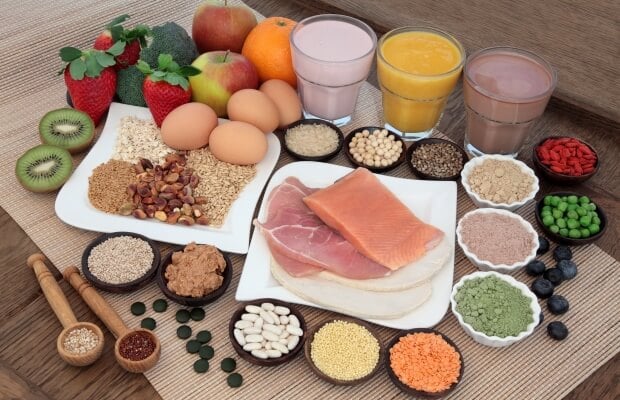BHF dietitian Victoria Taylor says:
It has been suggested that eating soya could lower cholesterol. But when the evidence was reviewed by the European Food Safety Authority, this effect was not seen consistently, so it was concluded that a cause-and-effect relationship could not be proven. As a result, soya products sold in the UK are not allowed to make claims about health benefits.
The limited evidence that exists is only linked to eating at least 25g (1oz) of soya protein a day. To get 25g of soya protein, you’d need to eat roughly 150g (5oz) of soya mince, 200g (7oz) of tofu or edamame (soya beans), 600g (1lb, 5oz) of soya yoghurt or drink 750ml (more than 1¼ pints) of soya milk.
However, soya beans are still a nutritious food containing protein, fibre, unsaturated fats and a range of vitamins and minerals, and as part of a healthy, balanced diet, soya beans could still help to lower cholesterol. That’s because replacing foods high in saturated fat with those containing unsaturated fats can help to lower cholesterol.
Soya beans, or soya products made from them such as tofu, soya chunks or mince, can be used as a replacement for fatty or processed meats. Similarly, soya milks and yoghurts can be used as dairy alternatives. Give soy sauce a miss – although it’s made from soya beans, it doesn’t contain much protein and is high in salt.
 Meet the expert
Meet the expert
Victoria Taylor is the BHF's Senior Dietitian, with 20 years' experience, and has worked for the NHS on weight management and prevention of heart disease.









